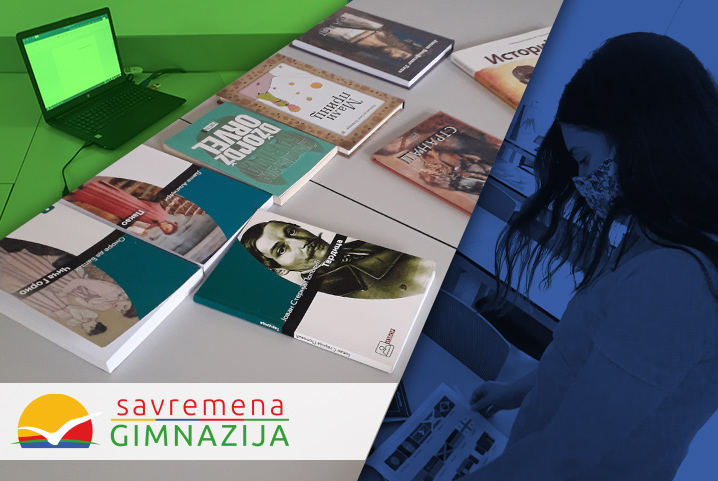
As part of Mensa’s activities organised every year in celebration of Intelligence Day, teachers of Savremena Gimnazija, Ivan Matejić, Ana Vasilić and Milica Aleksić decided to demonstrate how a popular concept of the escape room can be applied in education. This is not the first time they have prepared something like this for our students, but this time, the undertaking was much more challenging, because they wanted to link the game with the coursework as much as possible.
What is an escape room?
This intensive experience encourages students to solve problems, work as part of a team, and examine and analyse clues to achieve the ultimate goal. This activity is a cognitive experience that helps one learn in an unusual and fun way. Players are presented with a scenario that is educationally rich, the content of which represents an intellectual challenge, but which ultimately makes them happy due to its competitive aspect.
Students are divided into teams of 4-5 members, and each team receives a scenario they need to solve in order to get out of the room. The fastest team to solve the puzzle wins.
What is Savremena’s escape (class)room?
The peculiarity of our “room” is that to escape from it, the teams need to possess knowledge and skills in as many as nine school subjects: History, Serbian Language and Literature, Mathematics, Physics, Chemistry, Music Education, Art Education and Computer Science.
The main advantage of the escape room as a concept is the fact that students realise success can be achieved only through teamwork and good organisation, as well as the fact that different team members each contribute to the solution by applying different types of intelligence (verbal-linguistic to understand the linguistic setup of the puzzle, logical-mathematical to connect clues and solve maths problems, spatial-visual to find clues in the classroom, musical intelligence to recognise music numbers, interpersonal for teamwork and role assignment). Some of the challenges include blank maps, the Morse code, amino acids synthesis, colour identification, auditory test, Mendeleev’s Periodic Table, historical facts, knowledge of literature, etc. It is crucial that these challenges are not linear, i.e. students should not only be able to identify them, but to correctly connect and organise them as well. The confirmation students experience when they solve several smaller challenges successfully is what maintains their interest and competitiveness throughout the game. The biggest challenge for teachers who designed activities was to achieve a balance in activity design – to make them challenging and realistic enough, to require coursework knowledge and skills acquired in the school context, but also to remain relatable and comprehensible for the given age group. Of course, the ultimate value of this activity lies in the development of logical thinking and reasoning needed to overcome everyday challenges which are never linear, or related to a single area of knowledge, and the fact that students learn from each other in this processes, complement and encourage each other, as well as praise one’s individual and team success.
As already mentioned, this is not the first time teachers of Savremena Gimnazija have organised something like this. Namely, Escape Room was the final game that decided the winner in the traditional competition of our students, better known as Savremenijada in June 2019. We hope that we’ll be able to organise this competition again at the end of the school year and thus test the knowledge and skills of our students in an enjoyable way.

















